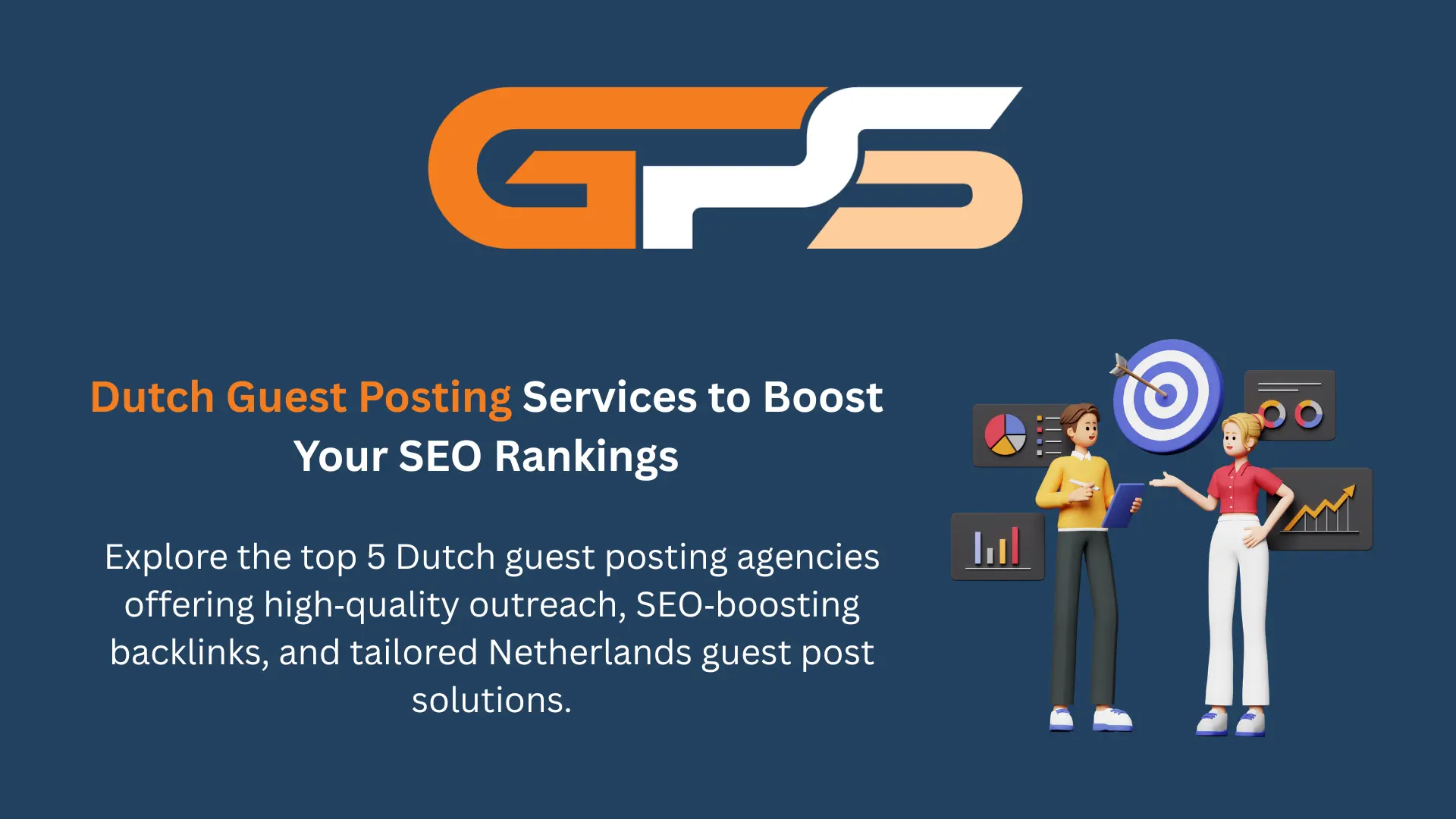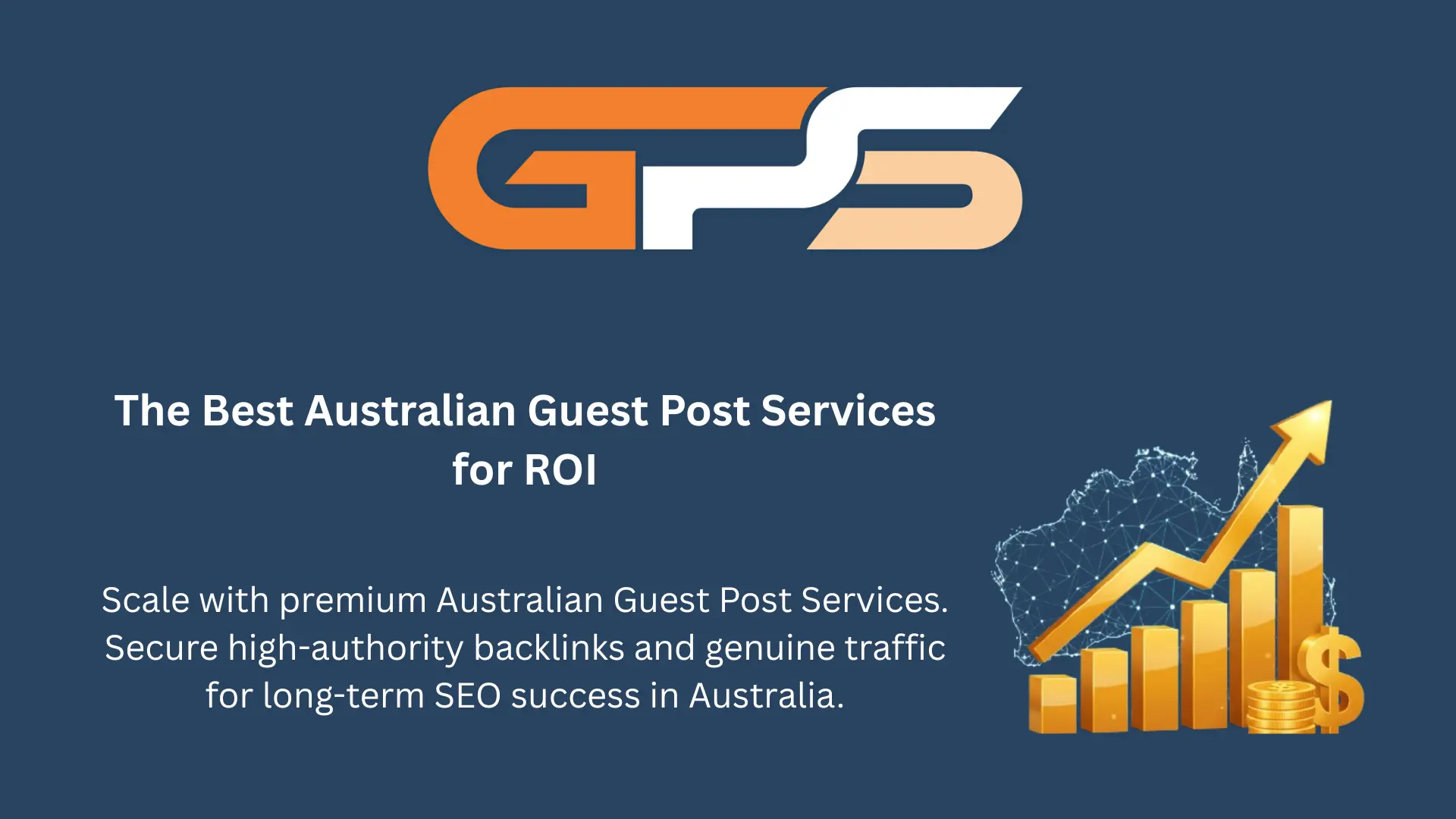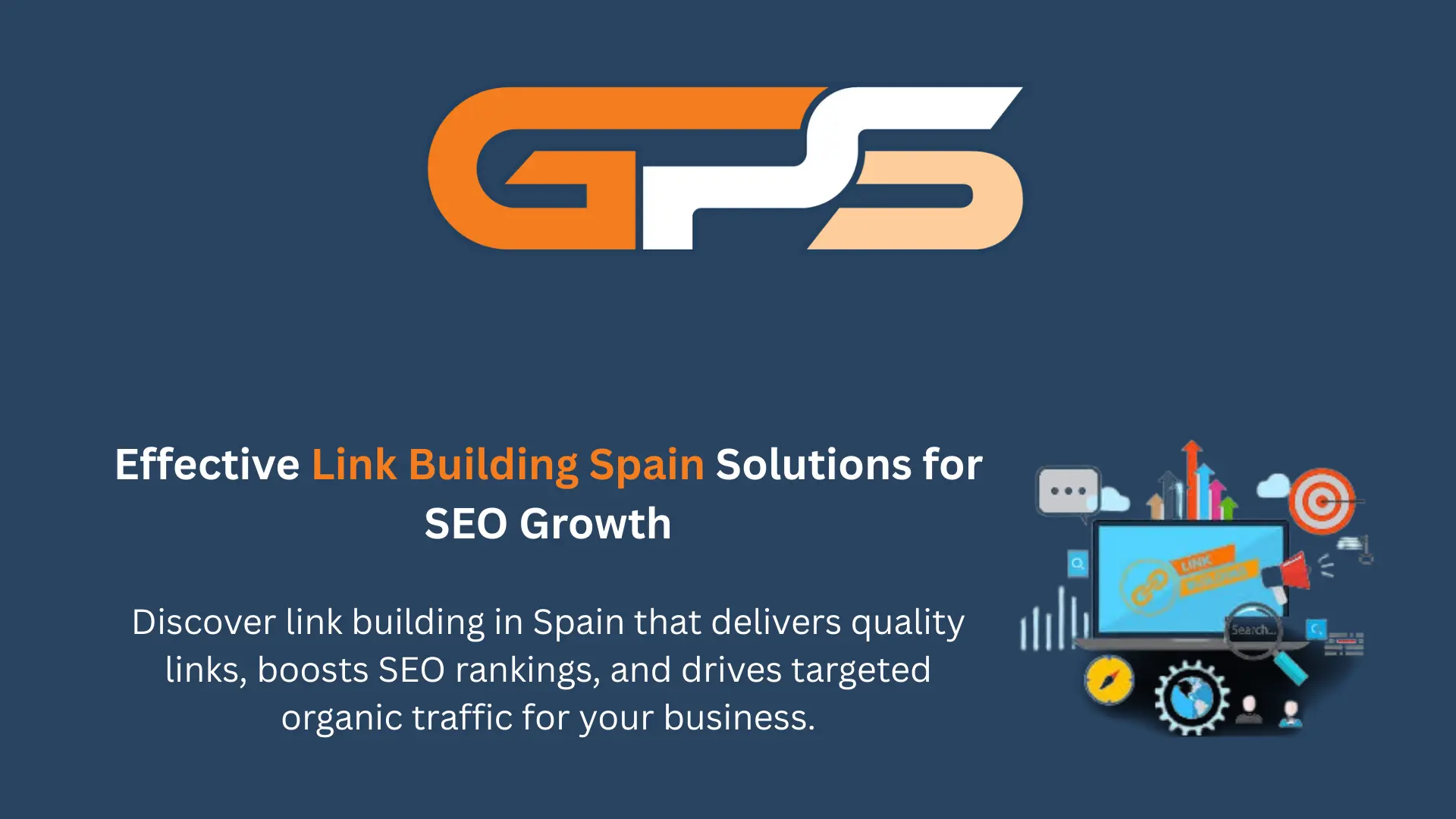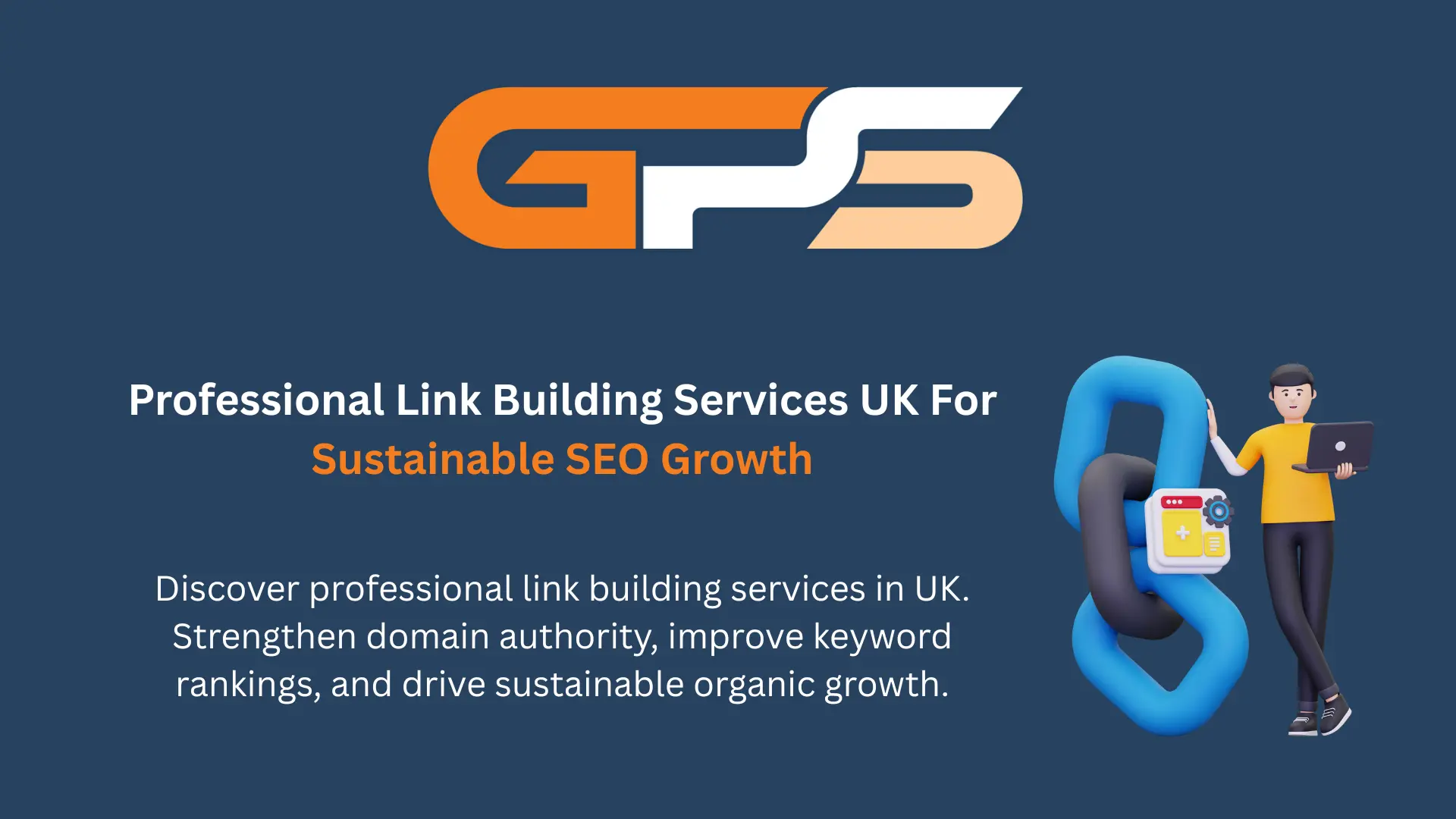Top Gambling Link Building Services to Boost Rankings
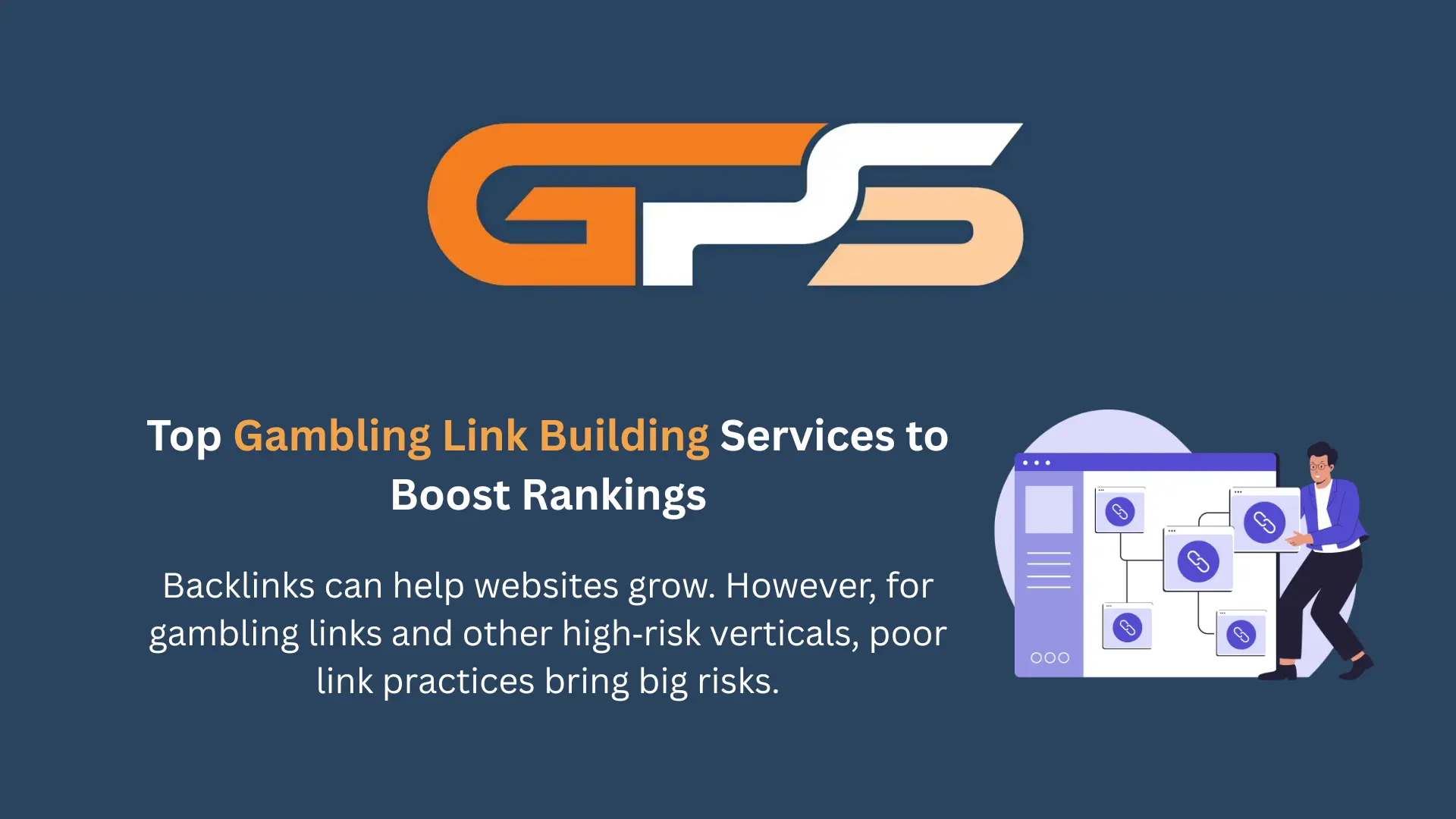
People often wonder how some gambling sites manage to rank so highly. In many cases, backlinks play a big role. Backlinks are links from other websites to a site. However, not all backlinks are the same. Some are natural and helpful. Others are low quality or manipulative. In this article, we explain in simple terms how gambling link building is sometimes created, why that can be harmful, how to spot suspicious link patterns, and how businesses and site owners can respond safely and legally.
What are gambling backlinks – short and simple?
A backlink is a link from one website to another website. Gambling backlinks are links that point to gambling websites. These links can be found on blogs, forums, directories, social media, review sites, or other pages.
Some gambling backlinks happen naturally. For example, if people like your content, they may share it or link to it on their own websites. These natural links are good and safe for search engines.
However, many backlinks are made only to improve a gambling link building website’s search ranking. These links may appear on low-quality or unrelated sites and are often created very quickly. Also, some of these links may break search engine rules or even local laws.
Why backlinks matter for ranking
Search engines use links as a signal of trust and popularity. Generally, good links from trusted sites help rankings. However, low‑quality or spammy links can damage rankings instead. In addition, search engines and regulators are more strict about gambling link building services and content in many places. Therefore, link practices that ignore rules or ethics can cause penalties, takedowns, or legal trouble.
How people commonly create backlinks for gambling sites
Below is a high‑level look at common approaches people use to create gambling link building sites. I explain the methods but avoid providing instructions that could facilitate abuse. The goal is to help you understand what to look for and how to defend against harmful practices.
Guest posts and article networks (sometimes abused):
Some sites publish guest articles that include links to gambling link building sites. When done honestly, guest posts add value and useful context. However, some people pay for low‑quality networks just to place links without useful content. As a result, search engines may flag those links as manipulative, and they often bring little real traffic.
Paid directories and link farms:
Some services sell listings or bulk link placements to many sites at once. These pages usually exist only to pass link value and do not help users. Consequently, such backlinks are low quality, and they can harm a site’s reputation and search performance.
Comment spam and forum links:
Low‑value links often appear in blog comments, forum threads, or user signatures. While a genuine comment can be helpful, mass posting links in many places adds no value. Therefore, these links are risky and rarely improve real traffic or trust.
Private blog networks (PBNs):
A PBN is a group of sites owned by one party used to pass links to a target site. At first, PBNs may give a ranking boost, but search engines work to detect them. When discovered, sites benefit temporarily at best and can face severe ranking penalties in the long run.
Link exchanges and reciprocal linking:
Sites sometimes swap links to help each other. If done occasionally and logically, this is harmless and natural. However, a large pattern of direct swaps aimed only at influencing rankings looks manipulative and can be penalized.
Fake reviews, directories, and profile links:
Some backlinks appear inside fake review pages, spammy directories, or user profiles created only to host links. These pages rarely help real users or provide useful information. Consequently, links from these sources have poor value and raise red flags for search engines.
Automated link generation and comment bots:
Some tools mass‑create links, comments, or forum posts automatically. These automated links rarely reflect real interest and typically land on low‑quality pages. Thus, they are risky and often ignored or penalized by search engines.
Remember: we describe these methods so you can spot and stop abuse. We do not encourage using manipulative tactics.
Read the recent blog “Best Casino Link Building Services for Safe Backlinks”.
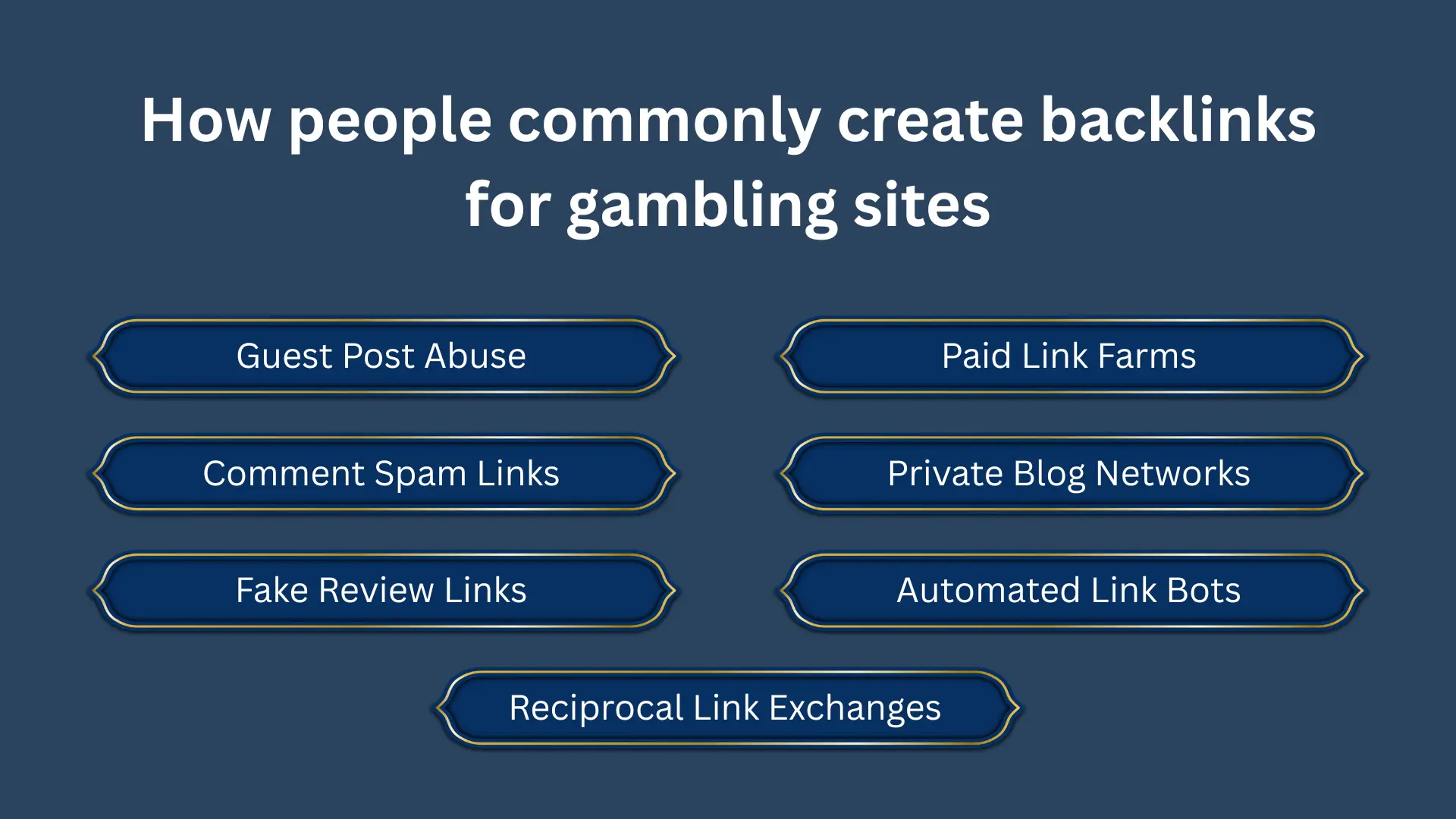
Why is this especially sensitive for gambling sites
Gambling is regulated in many countries. Moreover, gambling content often must meet age restrictions and legal licensing rules. Therefore:
- Poorly sourced links can point to unlicensed or illegal gambling operations. This draws legal attention.
- Search engines may apply stricter trust checks to gambling domains. As a result, spammy backlinks can lead to more severe penalties.
- Users and payment providers also watch gambling link building sites closely. Bad links can harm reputation and business relationships.
Because of this, gambling link building sites must follow sound, compliant SEO and avoid manipulative link schemes.
How to tell if a gambling site uses low‑quality backlink tactics – simple signs
If you run a website or watch competitors, look for these warning signs. They help you spot possible abuse without needing technical skills.
Sudden spikes in backlinks: If a site gets thousands of links overnight, it looks strange. Normally, backlinks grow slowly. Therefore, sudden spikes may show manipulative tactics.
Many links from unrelated sites: For example, a local blog linking many times to a gambling link building site without reason seems unnatural. Moreover, search engines may mark these links as low-quality.
Low-quality domains as referrers: Sites with thin content, spammy pages, or long link lists are a red flag. In addition, links from these sites usually do not help rankings.
Exact-match anchor text overuse: If the same keyword, like “casino link building and bonus,” repeats too much, it can show link manipulation. Consequently, search engines may punish the site.
Links from non-indexable pages: Links on copied pages, cloned sites, or hidden areas have little value. Also, they do not give real SEO authority.
High volume of profile or comment links: Many links from profiles, comments, or signatures suggest automation. Furthermore, search engines often ignore or penalize these links.
Large number of links from one IP or host: This can show private networks or mass-created sites. Therefore, these patterns may hurt search rankings.
Poor engagement on referring pages: If the referring pages get no visitors or interaction, the links are made only for SEO. In addition, they do not help real users.
What to do if you find harmful links
If you find links that appear harmful or spammy, take responsible steps. Again, these are defensive, legal measures, not instructions for building links.
- Document the links – Keep a record of the URLs and referring pages.
- Attempt polite removal – If the link comes from a real site, contact the webmaster and ask for removal. Keep messages factual and professional.
- Use the disavow tool as a last resort – If links cannot be removed and they clearly harm your site, using a search engine’s disavow tool may be appropriate. However, do this carefully and only after proper analysis.
- Monitor results – After action, watch rankings and traffic for signs of recovery or further issues.
- Seek expert help – If the situation is complex, hire an experienced, ethical SEO or legal advisor.
These steps protect your site without encouraging risky behavior.
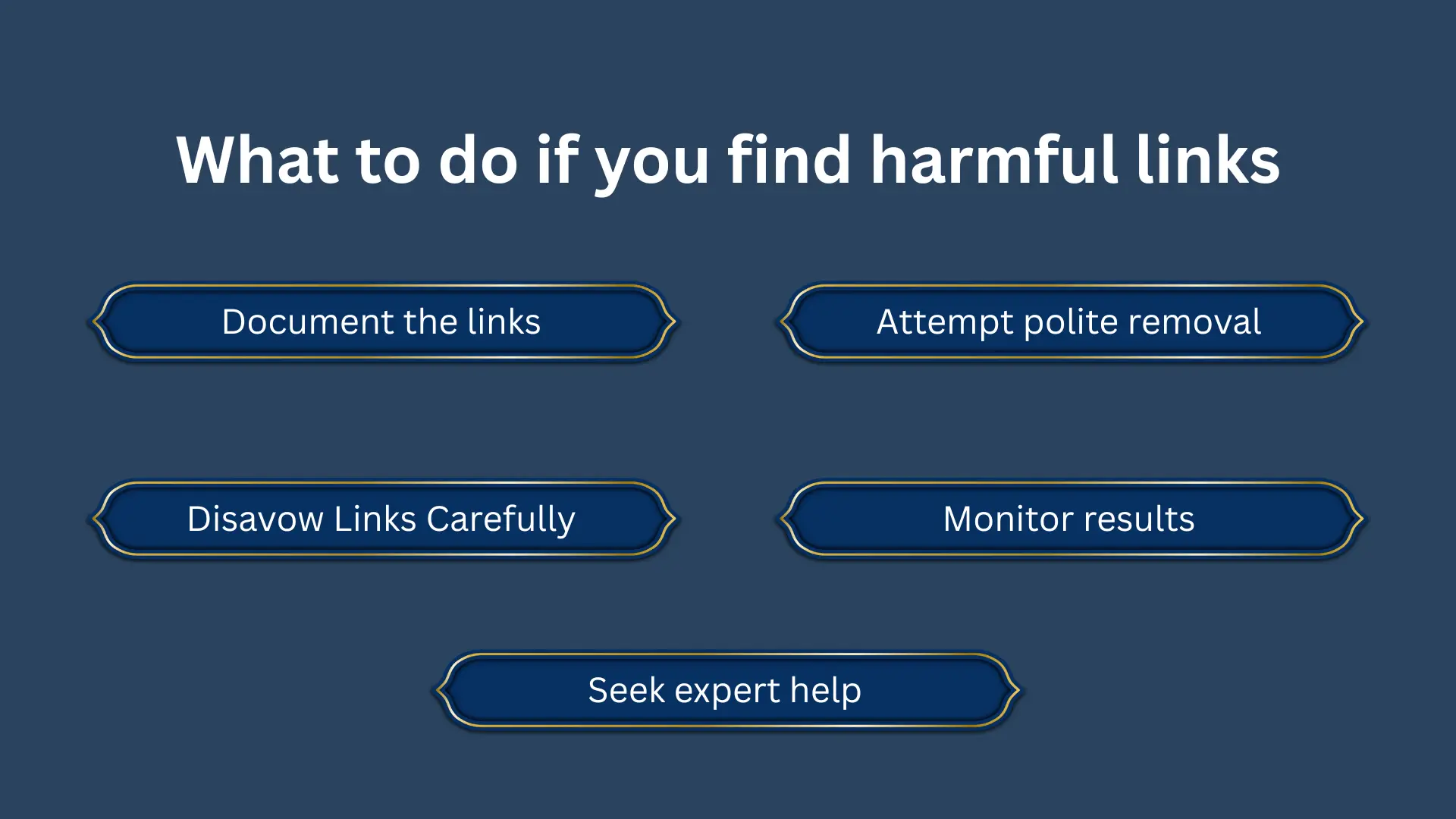
How to resist shady backlink tactics – advice for site owners and hosts
Monitor Your Backlink Profile Regularly
Check your website’s backlinks often using tools like Google Search Console or Ahrefs. Moreover, noticing unusual links early helps stop spammy backlinks from hurting your SEO or site reputation.
Disavow Suspicious or Low-Quality Links
If you find bad or spammy backlinks, create a disavow file to tell search engines not to count them. In addition, this keeps your website safe from ranking penalties and protects credibility.
Avoid Paying for Bulk Links
Do not buy large numbers of backlinks from low-quality sites. Furthermore, these links can look manipulative, harm rankings, and are often ignored or penalized by search engines.
Focus on Natural, High-Quality Links
Get backlinks through useful content, guest posts, and real outreach. Additionally, natural links build authority, attract real traffic, and give long-term SEO benefits without penalties.
Educate Your Team and Contributors
Make sure everyone who works on content or link building knows safe practices. Also, clear guidelines prevent accidental misuse of shady tactics and protect your website’s reputation.
White‑hat alternatives to risky link building
Create High-Quality Content
Pay attention to creating useful, original, and interesting material for your audience. In addition, high-quality content itself generates backlinks on trusted websites, increasing the search engine rankings and establishing trust over time without the danger of penalties imposed by search engines.
Guest writing on Relevant Websites
Create informative articles on reliable websites within your niche. Moreover, adding applicable links to these posts contributes to the traffic, better exposure, and receiving the white-hat and safe backlinks not via the spammy and manipulative methods.
Develop Connections and Reach Out
Connect with the bloggers, journalists, and web owners in the industry to post your material. Besides, authentic outreach fosters organic backlinks, brand trust, and long-term collaborations that deliver value to the users and search engines.
Legal and ethical considerations
Follow Search Engine Guidelines
Always make backlinks based on the provisions of Google and other search engines. Additionally, there is no need to use manipulative methods, as it helps to keep your site safe and guarantee your long-term growth without any threat to your rankings or credibility.
Value Copyright and Content Property
Do not steal information from other websites. Also, it is ethical to use original or duly cited material; this prevents legal complications and makes your site credible to the visitors and the search engines.
Do not promote the illegal sites of gambling
Do not make links to sites that violate the laws or present inaccurate information. Moreover, only legal and confirmed sites should be encouraged, which will save your reputation and keep your SEO practices safe and accountable.
Do Not Be Secret with Paid Links
You have to buy gambling backlinks or sponsored posts, which you have to disclose. Moreover, good transparency will deal with ethical SEO, establish trust with the users, and avoid being punished by the search engines due to hidden and manipulative links.
How regulators and platforms respond to spammy link schemes
Regulators and major platforms take links and manipulation seriously. Actions they may take include:
- Penalizing or delisting sites for manipulative SEO.
- Removing illegal content or enforcing age restrictions.
- Suspending ad accounts or payment services tied to risky operators.
- Taking legal action in severe cases of fraud or unlicensed activity.
Because of this, being careful with backlinks is not optional for gambling sites.
Final thoughts
Backlinks can help websites grow. However, for gambling links and other high‑risk verticals, poor link practices bring big risks. Therefore, it is wise to understand how some gambling link building is created. At the same time, focus on prevention, clean recovery, and white‑hat strategies. In short:
- Know the signs of spammy link building for gambling sites.
- Protect your site with monitoring and moderation.
- Remove or disavow links only after careful analysis.
- Invest in content and partnerships that give real user value.
- Follow laws and platform rules to avoid penalties.
When you act with care and clarity, backlinks become a tool for trust, not a source of trouble. Moreover, by choosing ethical SEO, you protect your business, your users, and your reputation.
FAQs
1. Is link building for gambling sites risky or safe?
It can be risky if you use manipulative or spammy tactics. But if you follow white-hat methods (guest posts on niche sites, real outreach, quality content), it’s safer and effective.
2. How do I spot bad gambling backlinks?
Look for red flags like: sudden spike in backlinks, many links from irrelevant or low-quality sites, repeated exact-match anchor text, or links from spammy directories or profiles.
3. What should I do if my gambling site has harmful backlinks?
First, document them. Then politely ask the webmasters to remove them. If that fails, use Google’s Disavow tool carefully. Monitor your rankings afterwards and consult an SEO expert if needed.

